November 08, 2022 Industry news
Committing to sustainable practices and providing consumers with environmentally friendly choices are rapidly becoming an essential part of any successful brand strategy.
GS1 standards play a vital role in supporting such strategies. By capturing and documenting trusted data on packaging attributes, the origin of raw materials, production conditions, the identification of chemical substances and more, standards enable businesses to measure the full impact of their supply chains.
This not only enables businesses to support environmental and ethical claims, it also equips them with the knowledge to make informed decisions for managing the chain of custody, improving recycling, reducing waste and emissions.
This is why we recently teamed up with our community partners at GTM Global to host an interactive panel discussion on building a sustainable business.
In part two of our summary, Unrest’s Orr Vinegold and Catherine Jonas from Wild & Stone provide commentary on how your business’ sustainability credentials could be the key to securing funding and driving growth.
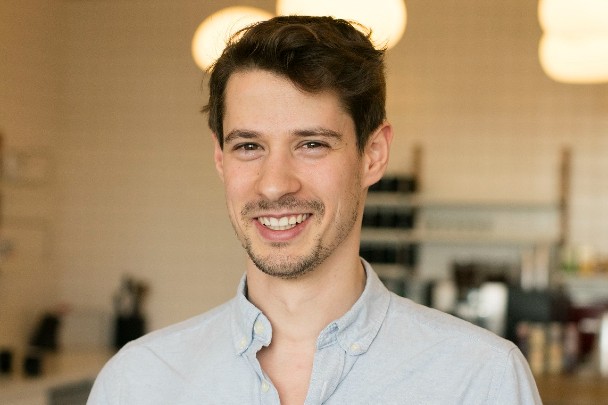
Orr Vinegold
Orr Vinegold, founder of Unrest
Unrest is a mission-driven start-up accelerator that helps businesses develop their product-market fit, brand identity and voice.
Consumption is the leading cause of the depletion of our natural resources and the whole reason for the creation of Unrest is that more and more founders are looking to build ethical consumer products.
Thanks to our diverse team’s wealth of experience across the start-up, marketing, finance, wellbeing and funding spaces, we have developed a four-month programme that covers everything from branding and accounting, to funding and global expansion.
Our job is to help you lay solid foundations for a sustainable business. We also help you grow by working with angel investors and venture capitalists to raise capital.
We look for founders with the vision, ambition and product ideas to build a global, £100 million-plus revenue business. Great examples of the type of organisations we work with include sustainable shoe and clothing brand Allbirds and plant-based meat substitute producers Beyond Meat, both of whom have enjoyed enormous success. More traditional examples would include the likes of Innocent Drinks, Patagonia and Lululemon.
We also work on a range of tech and non-tech brands and have supported 32 companies to date with our next cohort launching in March 2023. We are currently taking a deeper dive into the funding landscape to enhance our investor strategies as we know that any business needs capital to survive and scale quickly.
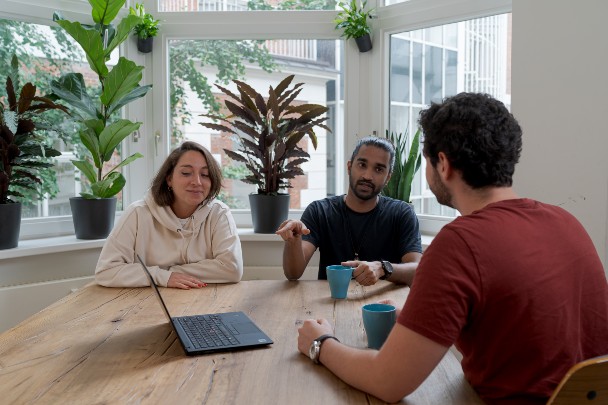
Funding opportunities
With just seven years to keep climate change below 1.5 degrees, time is of the essence. The change required to protect the future of our planet needs to happen quickly. We need to act quickly, and for that we need a lot of capital.
We work with a new type of investor who understands sustainability and what it takes to grow that kind of business. The good news is that if you are building a start-up in this space, there is a growing number of investors at all stages who are heavily focused on supporting sustainable businesses.
In the last 18 months, about half a billion has been raised in the UK alone by purpose-driven funds such as Giant Ventures and JamJar Investments.
What’s more, if your business is hitting the growth and the maturity stage, there are really strong incentives, and pressures, on growth investors and private equity to support you with capital on that journey.
Speaking the language
While there are many funding opportunities available to sustainable brands, we have noticed that many businesses are either unaware of them or not set up to reach them.
It is important for founders to understand the funding landscape, especially in terms of what investors are looking for, how to present a narrative that appeals to them and how to use the appropriate language to communicate it. This is why we bring founders and investors together in roundtables and fireside chats. It is in everyone’s interest to see sustainable businesses grow as we really need to accelerate a shift in focus from profit to impact.

Adapting to the changing landscape
This shift is certainly underway. If you look at the Fortune 500 companies, 70 percent of the value of that stock is attributed to brand equity.
This means that your brand needs to have a really strong purpose and identity from day one. Diversity is critical. There are major challenges to overcome if we are to build a more sustainable future and this requires diversity of thought. There is clear evidence to back this up as research has shown that diverse teams deliver 2.3 times more value in terms of share price.
To attract the right talent, you need to have a strong culture. This should be inextricably linked to your brand and allow you to build a space that people genuinely want to work in. We see a 65 percent increase in share price for companies that have developed an engaging culture as staff are motivated to stay and work hard to make a real difference.
There are plenty of examples out there that show just how powerful purpose-driven branding can be. In their market debut, Beyond Meat’s share price rose by more than 160 percent above its original IPO while Allbirds is currently valued at over $4 billion after is stock surged by 91 percent.
When we compare this to a company like Meta whose stock price recently plummeted by 26 percent, we see just how strongly the market is responding to growing demand for more sustainable consumer choices.
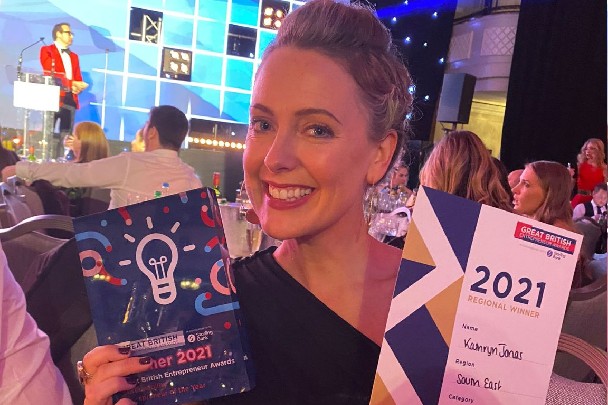
Catherine Jonas
Catherine Jonas, founder and chief visionary officer at Wild & Stone
Wild & Stone is a retail brand on a mission to make high quality eco-friendly products that help create a planet that is healthier for future generations. We do this by creating easy to adopt usable, and stylish alternatives to commonly used household plastics.
The core idea is that we need to make it as easy as possible and reduce any resistance for the average consumer to use our products over more commonly used plastic alternatives.
Sustainability is the absolute heart of our brand and we ensure that all of the products we create have traceable supply chains.
Having full visibility of the lifecycle of our products allows us to create them as responsibly and as sustainably as possible in terms of both people and the planet.
We started out back in 2018 and now have over 100 product lines that we are selling globally. You can find us stocked in places such as the Eden Project, Abel and Cole and multiple aquariums to name but a few.
Covid and the war in Ukraine have brought major new challenges over recent months. However, last autumn we managed to raise 200 percent of our funding target on Seedrs' crowdfunding platform. This has allowed us to continue to scale our operations and we have seen a ten-fold growth on our wholesale strategy in the UK.
Chief visionary officer may sound like an unusual title. My previous title was chief product officer but in truth my role fits into two halves. I do own the product side of the business but I also lead our brand strategy.
This is incredibly important for any eco-products company. A lot of my time is spent not only developing the end product and what it will look like, but also constructing the global supply chains behind it. For us, sustainability starts with the supply chain so we put a lot of a lot of work into making sure they are as sustainable as we can possibly make them.
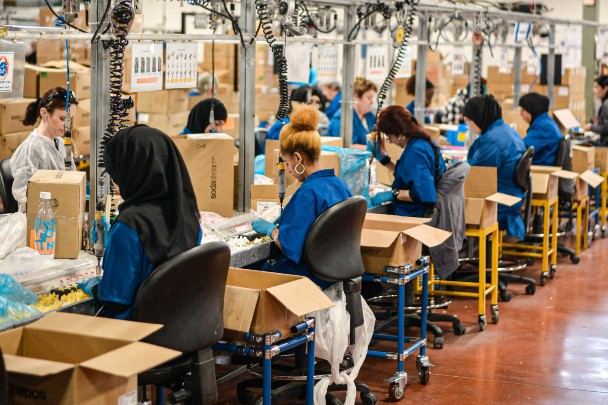
Investing in people
Having over 100 different product lines, we work with multiple manufacturers around the world. It is absolutely critical that we work closely with both the organisations on the ground and global framework bodies to make sure that our manufacturers are operating to certain social standards.
The employees within these factories all have to be treated to a certain level and are paid much more than the living wage in that country or region.
We check to see if the companies we work with are investing in their employees to actually enhance their quality of life, providing pensions, maternity leave, sick pay and other benefits.
One company we work with actually offers a loan to its employees which is charged at a lower interest rate than the local banks which allows them to get on the housing ladder much more easily. These are the type things that we're looking for to see if they're really investing in their people. We also take steps to ensure they are maintaining safe working conditions and that HR teams are trained to spot underage or slave labour.
Investing in planet
In terms of the planet piece, we have to be really careful about how we source the materials we use in production. We will only use materials that are from certified ethical sources like Forest Stewardship Council (FSC) certified woods or organic cottons and to do this we need complete traceability across the supply chain.
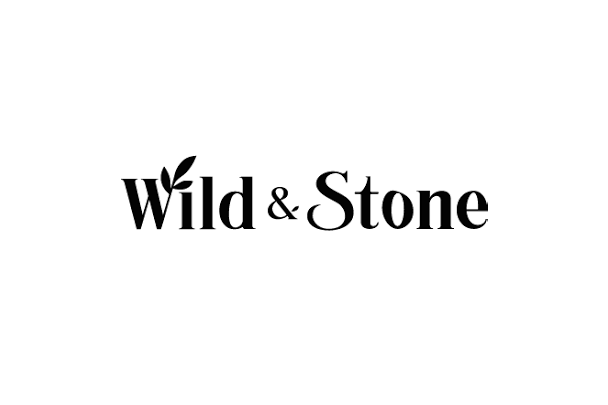
Branding matters
The other key aspect of my role is brand strategy. A lot of my time is spent exploring innovations, new materials and technologies that have the potential to drive lasting change and there are so many that are coming forward.
Governments, businesses and consumers across the world are becoming much more focused on sustainability so we are seeing new materials and solutions emerge by the day. Bioplastics and materials made from waste products have huge potential but we still need to invest in promoting circularity and taking petroleum-based plastics out of common use.
A big part of this will rely on how we position sustainable brands to the consumer. Carefully crafting go-to-market strategies that not only appeal to consumers but also educate them on the need for change will be essential if we are to increase appetite and positive sentiment towards eco products.



